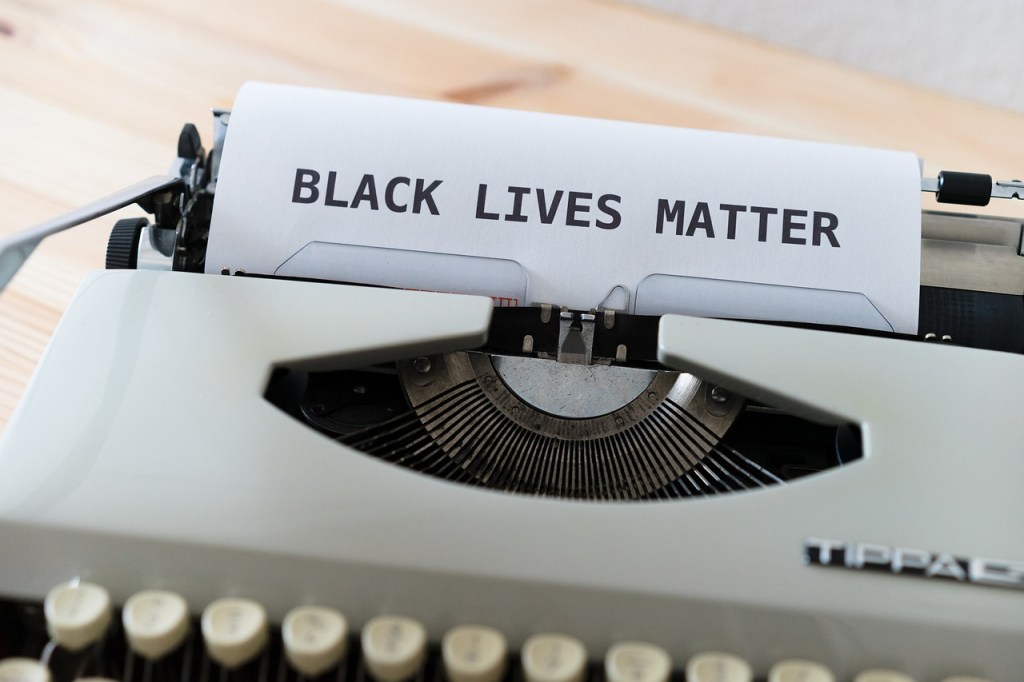
Words are the paint to my page. I’m a literary artist who minds my words to communicate the stories that flow through me to connect with readers. I want my stories to live in others, to change their minds and move their hearts. Because writing is my vocation, I know words carry power. Yet, I’ve observed that people often use words out of habit. To live as an antiracist is to mind our words. Habit can hide racism.
First, let’s examine the words, “not racist” and “antiracist.” Author and historian, Ibram X. Kendi clarifies the difference:
“The opposite of racist isn’t ‘not racist.’ It is ‘antiracist.’ What’s the difference? One endorses either the idea of racial hierarchy as a racist, or racial equality as an antiracist. One either believes problems are rooted in groups of people, as a racist, or locates the roots of problems in power and policies, as an antiracist. One either allows racial inequities to persevere, as a racist, or confronts racial inequities, as an antiracist. There is no in-between safe space of ‘not racist.’”
We live in a time when we are working to shift our understanding. We explore words through concepts and explain their meanings. Recently, I read this meme on social media:
“White privilege does not mean your life was not hard. It means your race was not an obstacle.”
Everyone has had hardships. To understand these difficult or discomforting words, we must go beyond our poverty, trauma, and circumstances. We need to heal our wounds and not confuse personal pain with experiences of racial inequities. If indeed you’ve suffered, get help. Inner nutrition means we feed and heal our unseen parts. If you are White and have emotional pain from hardships, it’s near impossible to understand the lived experiences of Black people. Think of it this way—if you had an untended broken arm, you can’t pay attention in class. You’re going to focus on your pain, not the lesson.
To understand “white privilege” you need to set your inner broken arm. If the words “white privilege” trigger a pain response, explore its origin. We all experience suffering. It’s a shared human experience. Suffering is why we may practice breathing, mindfulness, and seek the comfort of shared spirituality, why we may hike, dance, learn yoga, tap, meditate, and participate in different types of therapies. From a centered state of self-awareness, we can examine discomforting words with resiliency and grace.
You can look up “white privilege” in an online dictionary, but Black historian and author, Ibram X. Kendi, explains it well:
“White privileges are the relative advantages racism affords to people identified as white, whether white people recognize them or deny them. To be white is to be afforded one’s individuality. Afforded the presumption of innocence. Afforded the assumption of intelligence. Afforded empathy when crying or raging. Afforded disproportionate amounts of policy-making power. Afforded opportunity from a white network. Afforded wealth-building homes and resource-rich schools. Afforded the ability to vote quickly and easily.”
If you are White, consider observing your social privilege the way you’d track daily gratitude.
When you pay attention, privilege reveals itself. I was surprised at how quickly I added up my white privilege despite being a woman who comes from poverty and survived childhood sexual abuse. None of my hardship erases the truth that I don’t fear for my white son’s life during a traffic stop.
Another set of contentious words built the movement #BlackLivesMatter. It’s action to end the deadly oppression of Black people after the 2013 acquittal of Trayvon Martin’s murderer. According to the official organization, “These three words have been said many times in many ways. And they still need to be said. Today.” Watch the words in action at https://blacklivesmatter.com/these-three-words/ and explore the website to understand their meaning beyond a rallying cry.
If your response to “Black lives matter” is “all lives matter,” pause, and take a clearing breath. Your response reveals a misunderstanding over semantics because “all” is an inclusive word. For clarity, expand the idea to: “All lives will matter when Black lives matter.” “All” is not true until we overcome systemic racism and end deadly oppression. You may have Black friends or family, but if you are White, you have not lived the greater Black experience. By greater, I mean a collective of experiences, an ongoing history of oppression, and social constructs that rely on White people remaining color-blind to systemic racism.
To open our eyes, let’s mind our words.
Be curious and willing to understand the stories of others. Respond from a place of healing to help others on their healing journeys, too.
As I conclude my series, I impart what I’ve learned so far on my journey to be an anti-racist.
- Be willing to sit with your discomfort.
- Be curious and explore your roots.
- Amplify Black authors and artists.
- Acknowledge and heal your inner pain.
- Empathize with experiences you have not had.
“No one becomes ‘not racist,’ despite a tendency by Americans to identify themselves that way. We can only strive to be ‘antiracist’ on a daily basis, to continually rededicate ourselves to the lifelong task of overcoming our country’s racist heritage.” ~ Ibram X. Kendi
Charli Mills grew up out west where she once won a rodeo trophy for goat-tying. Now she wrangles words from the Keweenaw as a literary artist, writing about the veteran spouse experience and women forgotten to history. She makes literary art accessible at CarrotRanch.com.
Works Cited
Kendi, Ibram X. How to Be an Anti-racist. Penguin Random House LLC. 2019
Black Lives Matter. “These Three Words.” Vimeo. 2020. https://blacklivesmatter.com/these-three-words/.
Franklin & Marshall College Library. Black Lives Matter: Antiracist Resources. 2019. https://library.fandm.edu/c.php?g=1045768&p=7588278.
Excerpted with permission from the Summer 2021 issue of Health & Happiness U.P. Magazine. Copyright 2021, Empowering Lightworks, LLC. All rights reserved.